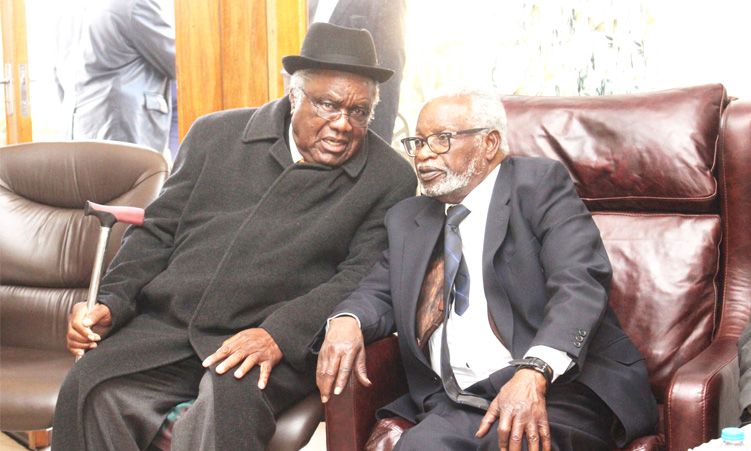Workers hurry and halt, travel and tote large, checkered bags below the piercing whistle of the contract labour system in the University of Namibia’s (Unam) ‘Walkers/Workers’.
Performed by the university’s third year drama and theatre arts students at the recent /Ae//Gams Arts and Cultural Festival, the live art piece was staged to celebrate the migrant workers of the world ahead of Workers’ Day tomorrow.
The checkered bag at the centre of the performance has become a symbol for migration and is known by various names across the continent.
Often called a ‘Ghana must go’, its moniker in West Africa, the tote is also known as a ‘Majirondo pi?’ (Otjiherero) or ‘Mwaudako’ (Oshiwambo) in Namibia and as a ‘MaShangan’ bag in South Africa.
These inexpensive yet durable bags are often loaded with vital belongings as people seek work far from home, travel considerable distances to sell their wares or are uprooted from informal settlements.
In ‘Workers/Walkers’, which begins abruptly in a busy outdoor corridor at the City of Windhoek building, the bag is alternatively heavy, empty, used as shade or as a shroud as a worker lies still below the beating sun.
“The performance is a celebration of the upcoming Workers’ Day, remembering Namibia’s difficult and painful history of the contract labour system, as well as interfacing migration with labour to emphasise the point that most cities – including Windhoek – are built by migrants,” says director, performance artist and Unam performing arts lecturer Nashilongweshipwe Mushaandja.
“The bag is one that many migrants recognise. It is the baggage of migrants. The emptiness highlights the poverty and continued exploitation of workers. It speaks to not being settled, to otherness and to not belonging, to being ‘those people’,” he says.
Performed against the backdrop of the Museums Association of Namibia’s ‘Omutete wOkaholo – Migrant Labour and the Making of Namibia’, the mobile exhibition provides context to the performers’ movement, exhaustion, frustration, freedom songs and resistance.
The mobile exhibition can be viewed at Windhoek City Museum and offers an insightful introduction to the contract labour system.
The exhibition, shedding light on the system’s undignified recruitment process, migrant workers’ hazardous journeys on foot and in cattle cars, deplorable living conditions in underserviced compounds, the splintering of families and the system’s unintended political consequences, also shares images from the time, accounts from the deadly strike at Wilhelmstal in 1910 and insight into the formation of trade unions.
Excerpts from authors recalling life under the exploitative system, which sent men to mines, factories and farms to provide cheap labour for the colonial economy, are particularly harrowing and invite further reading.
An emotive and pertinent piece ahead of Namibia’s Workers’ Day, and International Workers Day on 1 May, ‘Walkers/Workers’ could benefit from improved in-performance monologue, dialogue or contextualisation, particularly as a pop-up piece.
It is, however, bolstered by the accompanying Museums Association of Namibia exhibition.
‘Walkers/Workers’ will be performed at various sites at Unam campus on Thursday, 2 May, and begins at the performing arts section at 12h30.
– martha@namibian.com.na; Martha Mukaiwa on Twitter and Instagram; marthamukaiwa.com
Stay informed with The Namibian – your source for credible journalism. Get in-depth reporting and opinions for
only N$85 a month. Invest in journalism, invest in democracy –
Subscribe Now!










